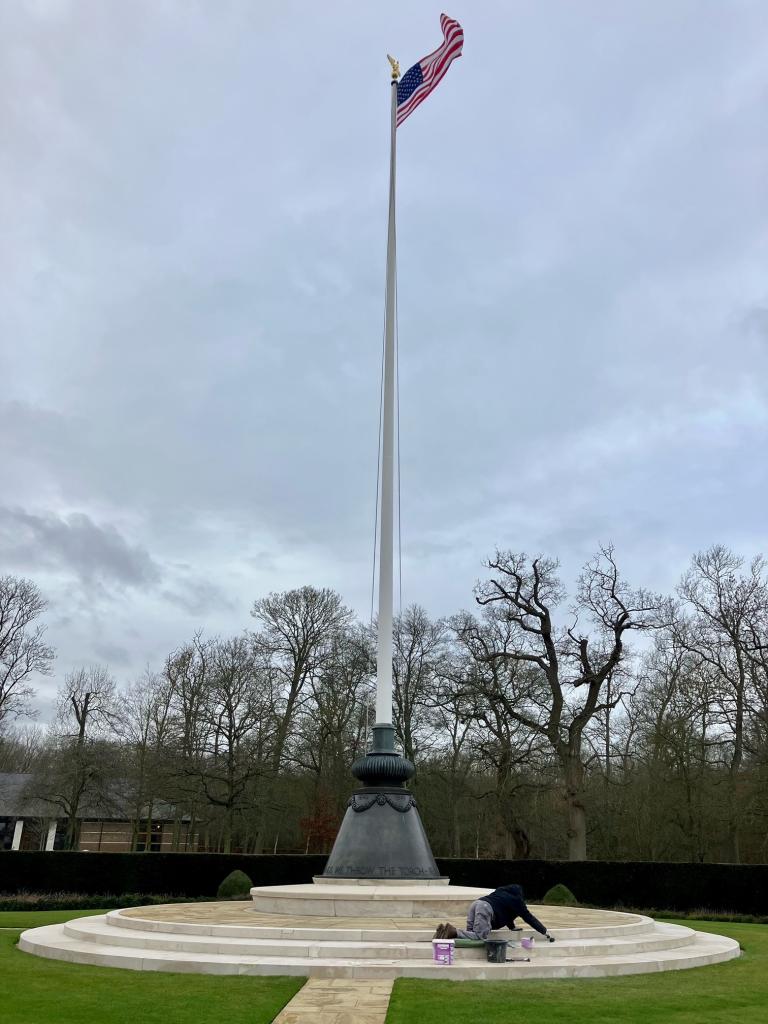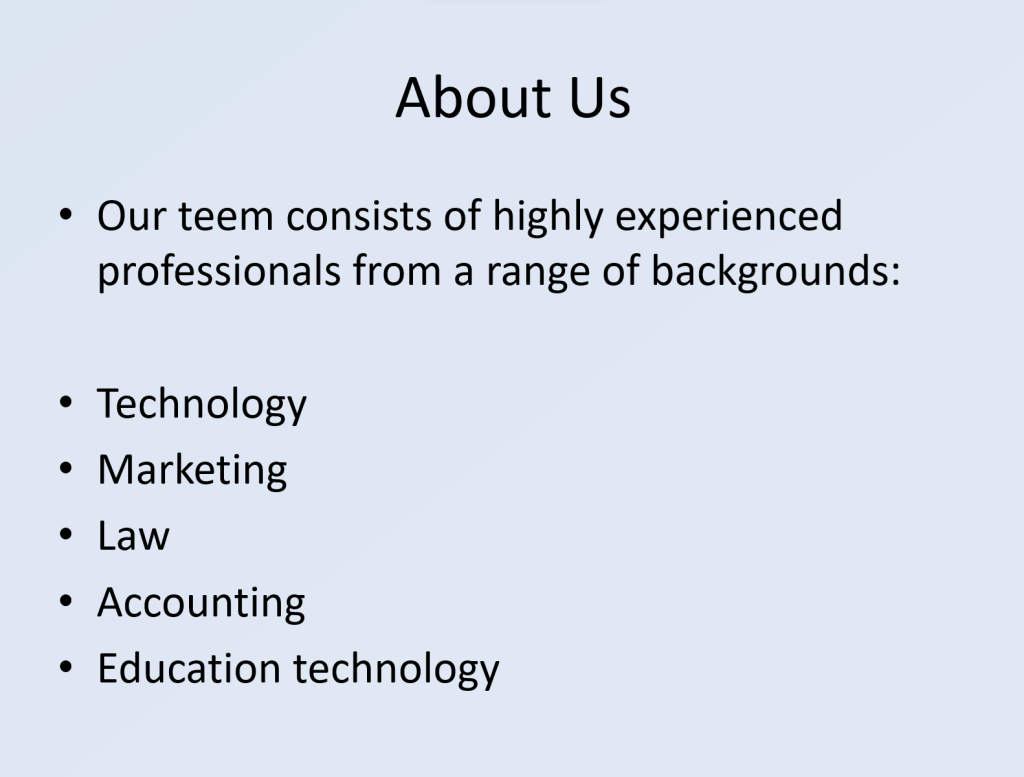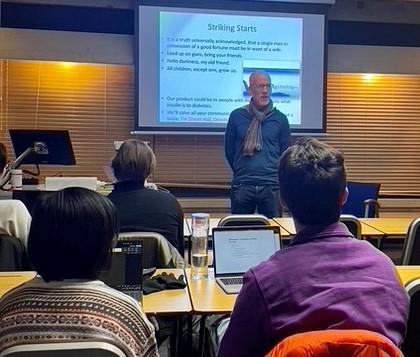A couple of very different details made a significant impact on me this week.
The first was on a walk, to one of my favourite parts of Cambridge…
The American War Cemetery at Madingley, on the outskirts of the city.
.
It’s a place I often stroll when I’m thoughtful.
Mostly because of how humble it makes me feel amid the sacrifices of the past for the future we enjoy today.
.
Something which always strikes me about the cemetery is the enormous pride in its upkeep.
The grass, the trees, the headstones, the memorials are always impeccable.
And why?
Because of the attention to detail.
As I saw when I walked past the flag which flies at the top of the cemetery.
There was a worker, busily sprucing up the stone dais, to make sure it looked its best.
And taking a great deal of pride in the job.

Now, you may well be asking:
What this has to do with my usual topic, talking about all matters communication.
Standby, here comes the link.
.
I’ve been working with a company on a pitch for new investment, a big one.
More than £10 million, in fact.
We got the narrative sorted, and I left it to the boss and his team to put together the slides.
I can’t reveal exactly what I saw in the presentation we then worked through...
But essentially this was what I spotted when it came time for a review:

If that slide looks okay to you (apart from the very basic design: excuse my poor reproduction), look again.
This time at the detail. See what I’m talking about?
Now, that may seem a small matter…
When compared to the super smart technology, and the brilliant team, and the huge amount of work which had gone into the business...
As the boss protested to me when I raised the issue.
But!
.
If I was one of the people thinking of investing so much money in the company:
Would I worry about how diligent they were, if they couldn’t get such straightforward spellings right?
In other words, if they didn’t have an eye for detail.
The subtext, perhaps, being a concern about just how careful they would be with my money.
Not to mention their accounting, management, customer relations, future planning, etc etc.
.
This was a big presentation, after all.
It’s not every day you pitch for more than £10 million.
Which surely means we should do everything we can to make sure it's as good as it can be, and goes as well as possible.
I’m happy to say the point was made, and the slide was changed.
.
Detail is critical in so many areas of communication.
If you’re applying for a job, and can’t get the spelling or punctuation on the form right…
It’s hardly going to make a boss think you’ll be a great employee.
If you’re interested in attracting my business…
But your advert is misspelt, or clumsily worded, then I’m going to worry about how interested you really are in looking after me.
And so on it goes.
.
Yes, I know I sound like a boring old teacher…
Or even - worse - a nagging parent…
Because I appreciate this is far from a glamorous element of communication.
.
But! But, but, but, in fact…
Remember the old saying:
(Paraphrased and refreshed, because avoiding cliches is another important point!)
- There can be devils in the details.



